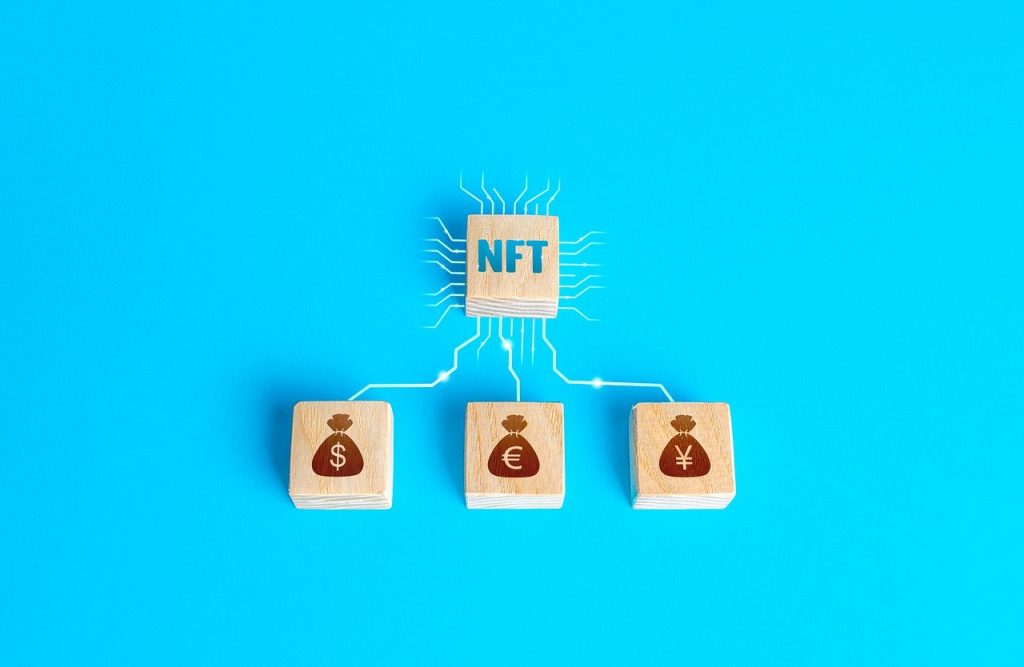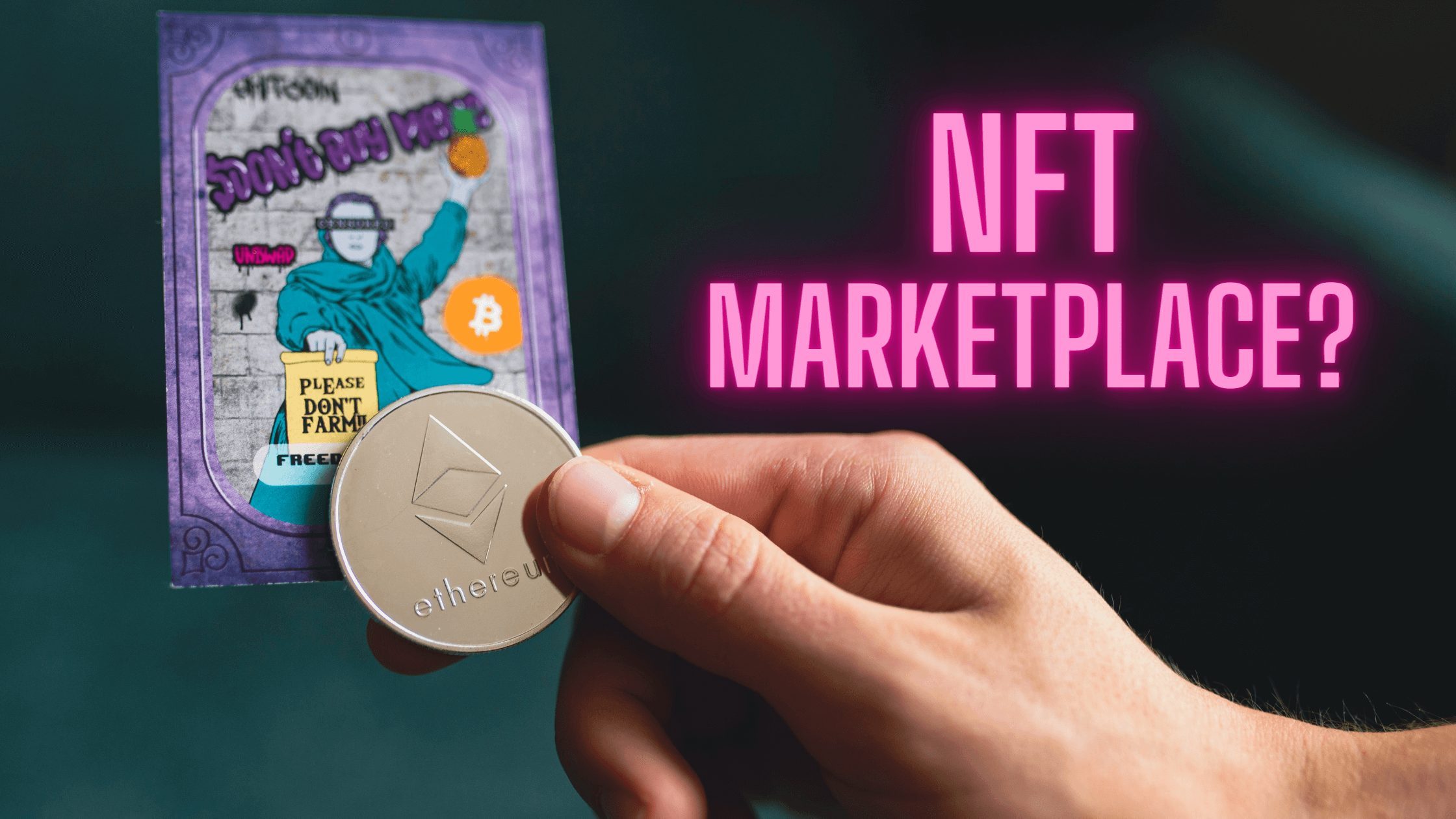It’s vital to plan your strategy of either choosing an existing NFT marketplace or creating a new one well before the launch of your NFT token. There are many NFT marketplaces to choose from. On the other hand, creating your own marketplace could broaden your scope of business. There is an alternate idea of getting professional help if you’re going to launch your NFT token.
This article will help you with how you can go ahead with your NFT project, choosing vs creating your own NFT marketplaces.
How to choose the ideal blockchain for NFT marketplace?
NFT projects are growing exponentially. Many startups and new technology brands are embracing the NFT-way for fundraising. NFTs give tech entrepreneurs an easy option for crowdfunding.
Similarly, NFTs are also becoming a lucrative investment opportunity for investors. Ethereum has been the choice of blockchain for NFT smart contracts. With growing popularity, the transaction cost on Ethereum blockchain is also rising every day.
For example, the Cryptokitties DApps was once offering free NFT minting on their platform. However, as the traffic on the Ethereum transaction block skyrocketed, they could no longer sustain the free transaction offering.
For smart contract transactions on the Ethereum blockchain, you need to pay a gas fee. This fee fuels many operations of the Ethereum blockchain, including miners validating smart contracts. But, this gas fee has been increasing for a long time.
Hence, you need to choose an appropriate blockchain for your NFT if you don’t want it on the Ethereum blockchain. You need to follow some guidelines to select the correct blockchain. The following ones are the most important:
1. Cost of developing a token or token transaction
You first need to look at the fee structure of the blockchain that you want to pick for your upcoming NFT project. It’s best to choose the one that doesn’t ask you to pay any fees. But, if that’s not an option, try to choose the one that asks you for the lowest possible charges.
Not all NFT projects will involve multi-million dollar collectible transactions. The most common target for NFTs is low-cost digital collectibles, in-game digital assets, game characters, card games, etc. These NFTs mainly involve microtransactions.
If the marketplace that you choose for NFT trading asks for huge fees for these microtransactions, traders and investors will lose interest in your digital asset.
Some blockchains even offer you funding for novel, promising, and profitable NFT projects. For example, Ripple and CENNZnet offer some funding schemes from time to time.
2. Fork-proof blockchain
You can see the high pricing of NFT if the demand rises and tokens become rare. However, some tricksters use hard forks to replicate your NFT and sell those in any NFT marketplace.
It increases the supply of NFT tokens in the market. It subsequently reduces the price of your original NFT. In some cases, the old chain may lose its value by 100%. Therefore, you need to adopt specific security measures from your end. Also, from the blockchain’s end, there should be fork-proof features in place.
3. Tested and tried smart contracts
You should always look for the blockchain that offers bug-free, secure, and clean smart contracts. You should also go through the documentation of the blockchain to ensure that the smart contract has been subjected to rigorous testing.
You can only get the assurance of no breaches, hacks, risks, and downtime if the smart contract has the highest degree of efficiency and resilience.
4. Transaction speed
The transaction speed is a vital metric for any digital system, especially one that deals in the transfer of value or data. Some blockchains may show you that their speed of transaction is high. But, do you know if they’re not compromising security for speed?
In another context, transaction speed is directly proportional to the transaction fees. At least, for the Ethereum blockchain, it’s 100% true. If you pay a low gas fee, you’ll get a long wait time and longer transaction time.
5. Security of the blockchain
Blockchains with Proof-of-Work (PoW) consensus mechanisms are susceptible to Man-in-the-Middle (MITM) and Fifty-One Percent (51%) attacks. Therefore, if possible, you need to go with the blockchain that’s mining-free like Proof-of-Stake (PoS) blockchains.
The following is a comprehensive list of NFT marketplaces with various information that’ll help you get started with your NFT minting project. In case you’re hoping to choose any of the existing NFT marketplaces, you should take a look.
| SL No. | Name of Marketplace | Country/Origin | Blockchain/NFT Protocol |
| 1 | OpenSea | New York, USA | Ethereum |
| 2 | Axie Infinity | Ho Chi Minh City, Vietnam | Ethereum |
| 3 | CryptoPunks | USA | Ethereum |
| 4 | NBA Top Shot | Vancouver, Canada | Flow |
| 5 | Rarible | Philadelphia, USA | Ethereum |
| 6 | SuperRare | USA | Ethereum |
| 7 | KnownOrigin | Manchester, UK | Ethereum |
| 8 | Foundation | San Francisco, USA | Ethereum |
| 9 | MakersPlace | San Francisco, USA | Ethereum |
| 10 | Nifty Gateway | New York, USA | Ethereum |
| 11 | BakerySwap | N/A | Binance Smart Chain |
| 12 | Binance | Malta | Binance Smart Chain |
| 13 | Solanart | N/A | Solana |
| 14 | Decentraland | Buenos Aires, Argentina | Ethereum |
| 15 | Grow | Miami, USA | Ethereum |
| 16 | Mintable | USA | Ethereum |
| 17 | Sorare | Paris, France | Ethereum |
| 18 | The Sandbox | San Francisco, USA | Ethereum |
| 19 | Valuables | Los Angeles, USA | Ethereum |
| 20 | Theta Drop | California, USA | Theta |
Ethereum alternatives for NFT projects

If you’re looking for an alternative to the Ethereum for NFT projects, it’s worth checking out the following blockchains:
1. Binance smart chain
It’s one of the very first blockchains built for NFT projects. It has an Ethereum virtual engine feature that enables you to run Ethereum-based DApps on the Binance platform. Furthermore, it is one of the best Proof-of-Stake (PoS) blockchain with a block time of 3 seconds for faster transaction processing.
2. Flow (by Dapper Labs)
It’s an easy-to-use blockchain for developers who want to develop marketplaces and crypto-assets. Its smart contract has been written on the Cadence programming language. It uses a multi-node system for several operations like consensus, verification, execution, and collection.
3. Tron
Tron is an open-source decentralized blockchain. Its smart contracts work on the Proof-of-Stake (PoS) consensus mechanism. TRX is the native cryptocurrency of this blockchain. Its TRC-721 protocol is suitable for NFT projects at low transaction costs.
4. EOS
EOS addresses the scalability and transaction performance issue of the Ethereum blockchain. Its users call it the Ethereum for businesses. EOS transaction blocks process 10K to 100K transactions in one second. Its native crypto coin is EOS.
5. Solana
Solana is one of the best alternatives for the Ethereum blockchain. It can process up to 50K transactions in a second. The Proof of History (PoH) consensus mechanism makes it a highly secure blockchain.
6. Polkadot
This Swiss blockchain developed by the Web3 Foundation team is thought to be an ideal alternative to the Ethereum blockchain. It works as a protocol for protocols.
For example, you need to pay exorbitant gas fees on the Ethereum blockchain for a space for your transaction. But, on Polkadot, you can just create your own space to run your DApps or NFT projects.
7. Tezos
Tezos is a secure blockchain that settles transactions using the Proof-of-Stake (PoS) consensus mechanism. It facilitates all of its transactions using the native crypto coin XTZ.
8. Algorand
The transactions on this blockchain are atomic and peer-to-peer. The system finalizes its blocks instantaneously for extra security. So far, the transaction cost on this blockchain is dart cheap, as low as $0.011. Hence, this blockchain is perfect for NFT projects that target microtransactions.
9. Cosmos
Cosmos is another Proof-of-Stake (PoS) blockchain. Tendermint is the mechanism that settles contracts with big volume, high speed, and robust security. Developers need to use the Cosmos SDK to build their own blockchain on Tendermint. The IBC protocol facilitates the communication between various blockchains on the Cosmos blockchain constellation.
Expert help from Dappros
Choosing a strategy for your NFT project demands a lot of research and experience. Dappros is one of the leading service providers for NFT project facilitation. It has its own DApp, Ethora engine, that can help you build a robust token economy along with social communication.
Dappros can develop customizable DApps that you can distribute among your clients for NFT minting, collecting, and trading. The Ethora engine-based app also comes with stringent security features like username, password, 2-factor Authentication via OTP, 3rd party authentication, etc.
You or your customers can create their own account through Google, Facebook, and Apple account credentials. Your clients or crypto community members automatically get a crypto wallet after creating an account.
Dappros helps you with strategy and implementation of NFT
There are multiple NFT marketplaces available on the internet but do any of them fit your business model? Do you just choose any NFT marketplace and blockchain and then wait for your luck? Or do you go through a logical, reasonable, and scientific approach for maximum success?
Dappros is one of the best ecosystem makers who can help you with your NFT token launch projects. Dappros’ Ethora engine is an easy-to-use low-code or no-code platform that takes you closer to your NFT project objectives.


